The National Christian Evangelical Alliance of Sri Lanka (NCEASL), originally the Evangelical Fellowship of Ceylon was inaugurated on the 24th of June 1952 in order to serve the national church. Since then the Alliance has grown significantly and in the country with 7.5% of Christians wish to continue to impact the lives of many. NCEASL endeavours to reach out to the needy, amidst challenges and religious persecution, by bringing hope and proclaiming the good news to the poor. This organisation unites 5 Christian denominations, 74 Churches and Christian organisations representing more than 200,000 Evangelical Christians in Sri Lanka.
Interview with Ms. Roshini Wickremesinhe, Director Advocacy & Law of NCEASL
What are the visions and goals of the National Christian Evangelical Alliance of Sri Lanka?
NCEASL will be celebrating 60 years in 2012 since its establishment in 1952. The vision of the Alliance in Sri Lanka is ‘unifying the church to transform the nation’. We believe that we, as Christians, are called to be agents of transformation.
In order to achieve this, we first identify the critical needs in our country. The process that we use for this is that we ask the question: if Jesus Christ was king of our nation, or the ruler of our nation, what would be the indicators in our nation? There would be Economic Sufficiency, Social Peace, Public Justice, and Individual and Corporate Righteousness.
Every time we sit as an alliance and plan our goals for the year, for five years, ten years, we look at the critical needs that our country is facing which are directly linked to these four indicators. For example under Economic Sufficiency, if poverty is a critical need, then we look at empowering those under the poverty line by providing livelihood grants or by implementing micro finance programmes. Also giving them skills training, so that they can engage in some form of income generation activity. Similarly when it comes to public justice, under that the critical need is religious freedom. If there is not religious freedom, we look at meeting this area of need; providing the persecuted with practical assistance, legal aid, rebuilding demolished churches and advocacy with those in authority.
In this way, our programme interventions meet the critical need in the Nation and these result in transformation. There are three main departments through which we carry out these programme interventions; Mission and Evangelism, Religious Freedom and Human Rights, and Relief and Development.
What can we thank God for this last month or year? What is most significant in the recent time?
Looking back at the last year, there are many things we can be thankful to God for, as an alliance; for the opportunity to touch individual lives and communities in our country, in so many different ways. We are thankful for God’s provision, wisdom and protection.
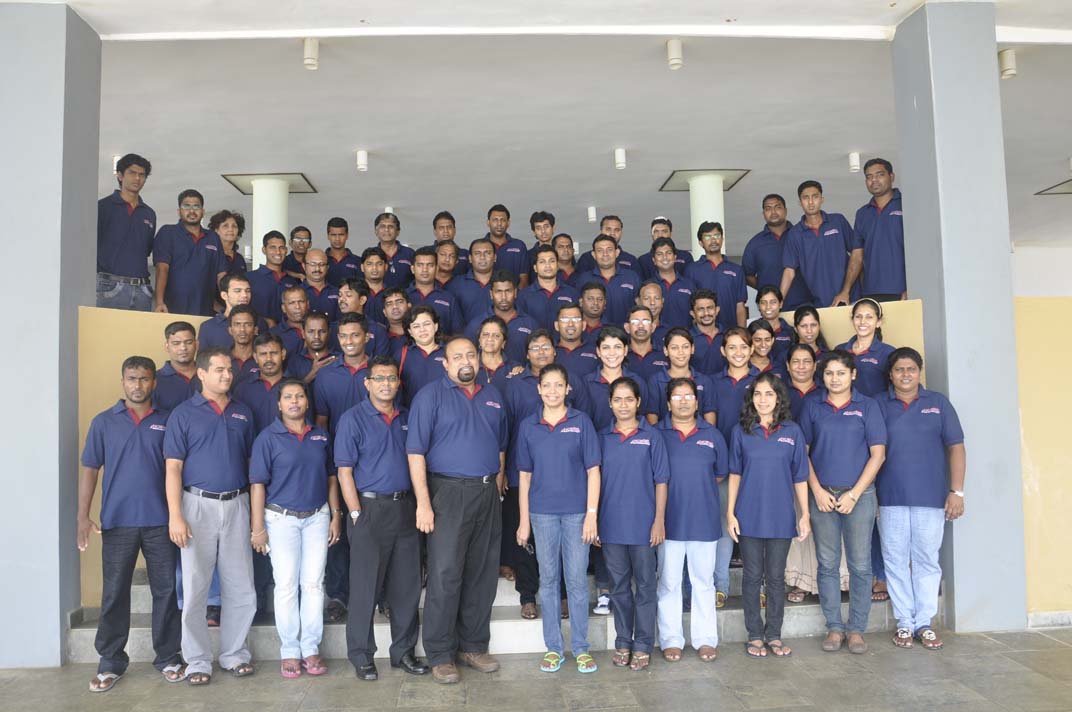
NCEASL Staff
One thing I want to specifically mention – for which we are thankful is our team of staff. We have an extremely dedicated and dynamic team of people who work as staff of the alliance, and they are, I believe, the alliance’s greatest assets. There is a saying that if you plan for one year, cultivate flowers; if you plan for ten years, cultivate trees; if your plan is for eternity, cultivate people. We believe in cultivating the best people. This year we felicitated staff members who have served the alliance for a long time. It was a surprise to find that more than 50% of the staff members have served the alliance for more than five years. Some have served for more than 10 years. This is a blessing and an achievement for which we are grateful.
This team coordinates many programs not only from our main office in Colombo, but also from our regional offices and satellite stations located all around the island. We have 7 regional offices and 4 satellite offices.
Can you give me some examples of public engagement with your local communities in Sri Lanka?
If we look at the way our mission department is impacting our nation and our region, they have planted more than 200 churches in unreached areas, provided training for rural pastors who are unable to attend theological colleges and universities. We have an Alliance Institute where theological education is taken to the villages, so the pastors can receive an education in theology while serving in their own church. There are also scholarships and book grants for pastors and students of theology. Another aspect is continuing education and empowerment through seminars and conferences, teaching pastoral workers on diverse subjects such as how to be a better preacher, counseling and ministering to a congregation, church administration, facing persecution, leadership etc.
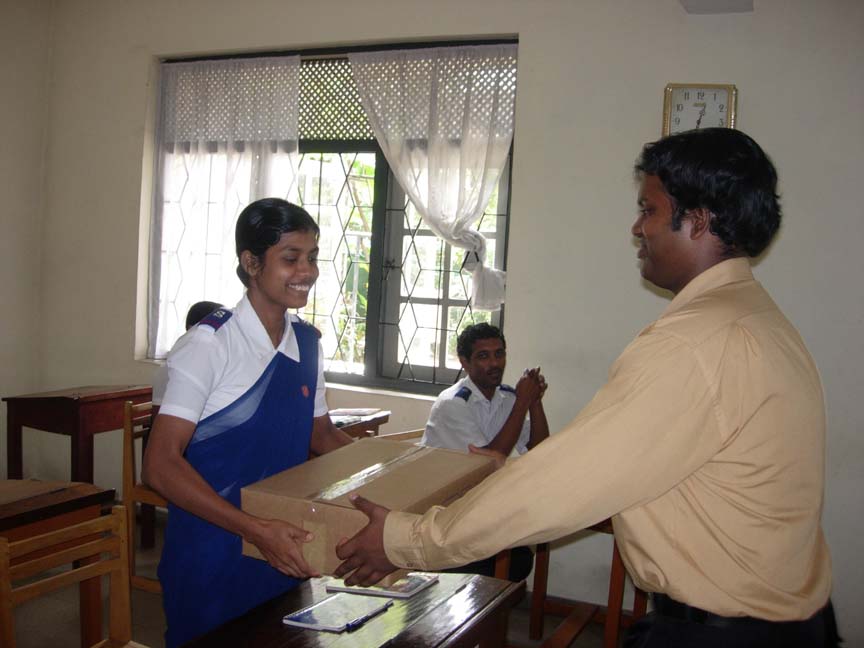
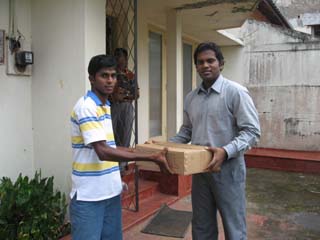
Book Grants for pastors who complete theological education.
Under religious liberty and human rights we minister to the persecuted church in many ways. Providing assistance to repair or reconstruct churches that have been attacked, demolished or burned down, emergency assistance such as safe shelter, medical, food and clothing for victims. We also provide educational scholarships to children of pastors, particularly those who are victims of persecution and also an annual Kids Camp for these children. Another aspect is legal aid as well as advocacy and lobbying campaigns on behalf of those whose human rights are violated.
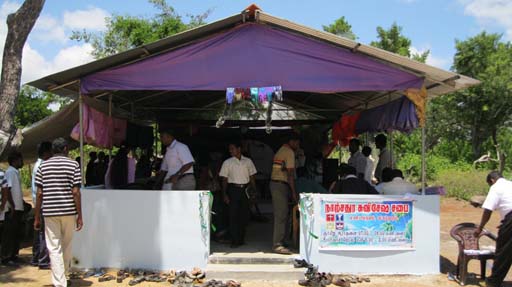
Temporary structures constructed to aid congregations of churches destroyed by the war
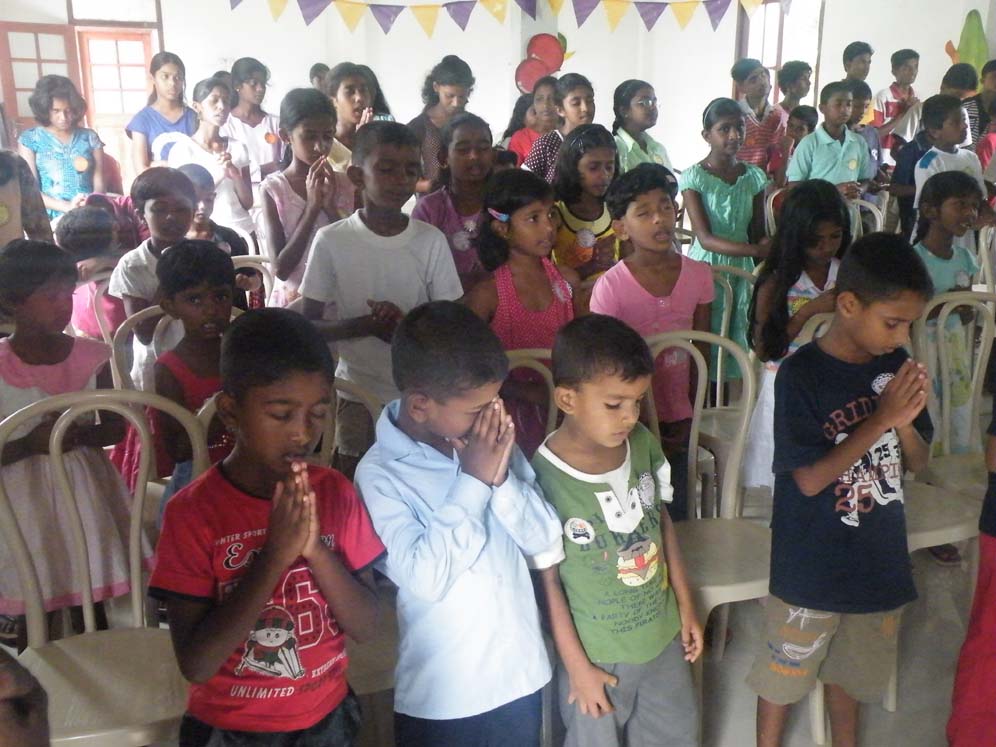
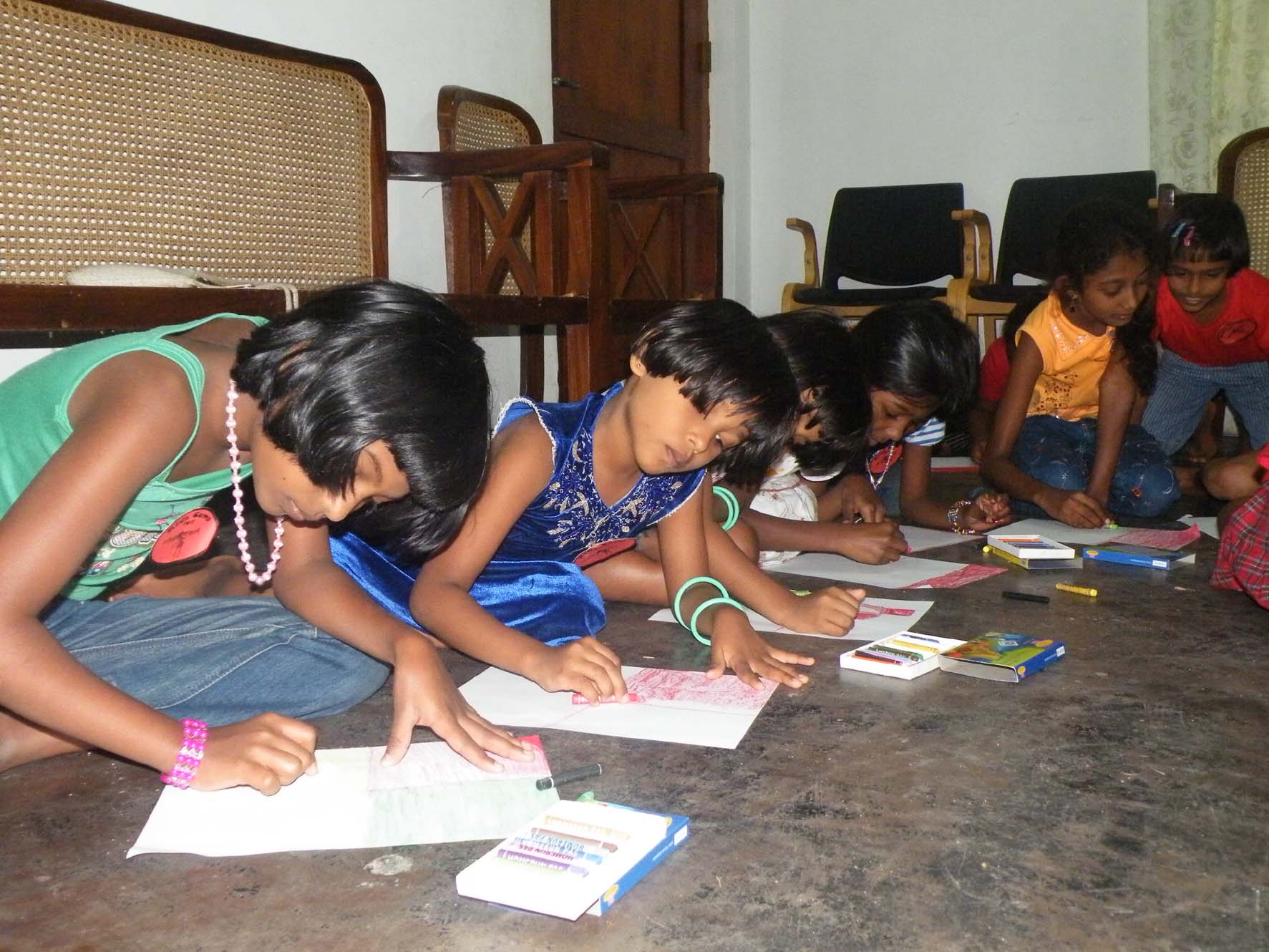 Kids’ Camp – encouragement camps for children of pastors
Kids’ Camp – encouragement camps for children of pastors
Under relief and development, there are several sectors on shelter, livelihood, water sanitation, and children’s ministry, HIV AIDS and peace and reconciliation. Under each of these sectors there are programs such as providing livelihood assistance for the poor, the disabled. During the past few years, we have worked a lot to assist the internally dispersed communities in the north, with the permission of the Sri Lankan government, doing our best to help them resettle, with livelihood assistance so that they can resume cultivation of their land or establish a small business, providing clean drinking water through cleaning and building wells. The Water Sanitation sector has been carrying out clean water initiatives since the time of the 2004 Asian Tsunami, not only providing communities with clean drinking water to those who don’t have access to clean water and building toilets, but also educating people on such as hygiene and keeping water sources clean.
Under Project Positive, we create awareness of HIV AIDS though educational seminars and publications. Seminars have been conducted in schools, with the military, in prisons and through churches. We also operate a transit home for HIV AIDS victims who come to the city to obtain medical assistance. This is a much needed service because the stigma attached to them is high and people are reluctant to offer them shelter in their homes. There is also training provided for those affected to begin a self employment project.
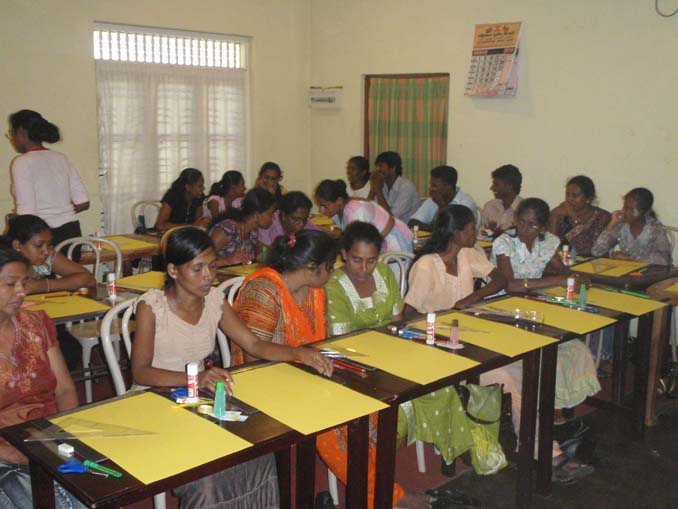
The Greeting Card Project conducted by the HIV and AIDS desk – Project Positive – empowers People Living with HIV and AIDS (PLWHAs) by providing them with training needed to earn a livelihood.
Through the children’s ministry we have established what are called Change-Maker’s Clubs where children are encouraged to be active in changing their communities for the better by organization activities such as protecting the environment though community clean-ups, safe drinking water etc. The children are encouraged to make decisions, with the guidance of adults in the community.
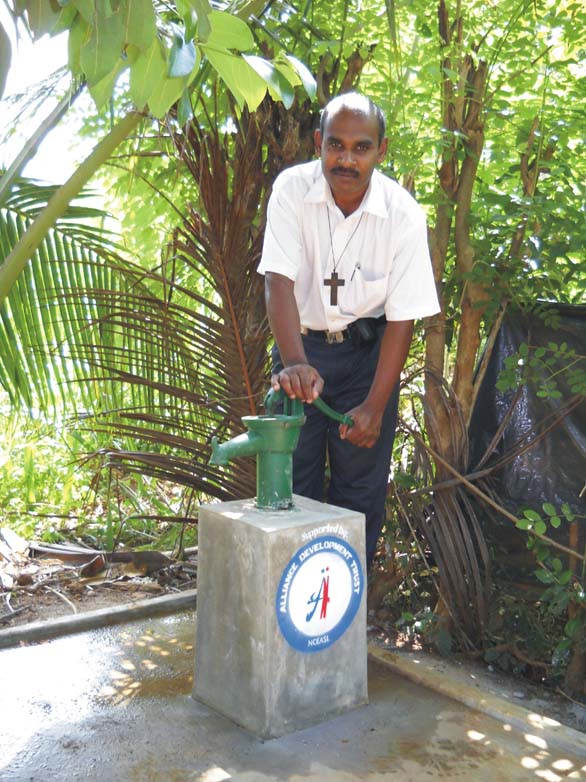
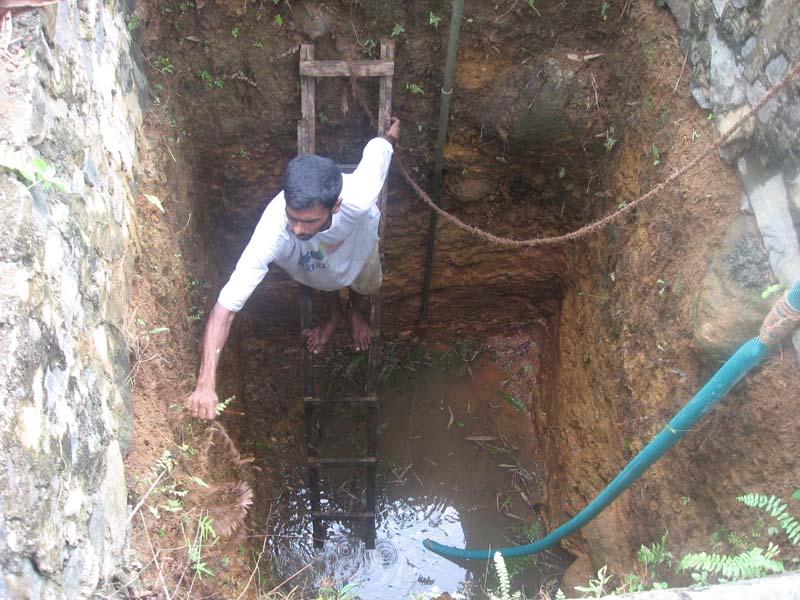
Building Tube wells for communities with least access to clean drinking water and cleaning of contaminated wells
Under the peace and reconciliation desk, we are involved in encouraging and facilitating people, particularly youth from both Tamil and Sinhalese communities to work together, resolve various issues through dialogue and promote reconciliation and exploring areas where the church can provide a framework for bringing about reconciliation between communities.
Some other specific projects of public engagement – We have been engaged in providing skills training for ex-combatants who are undergoing rehabilitation. The skill training for the ex-combatants is aimed to train them in some useful skill to earn a livelihood so that they can be re-integrated in to society. One of these was a programme where we provided training for young girls in beauty therapy and hairdressing. They received certificates after completion even had the opportunity to have a bridal show to showcase their talents. They were able to go back to their homes equipped with some skill that they can use to find gainful employment.
Boys were trained in food processing (making like jam etc. that can be marketed) or motor-mechanism so that they too can be gainfully employed when they go back to society.
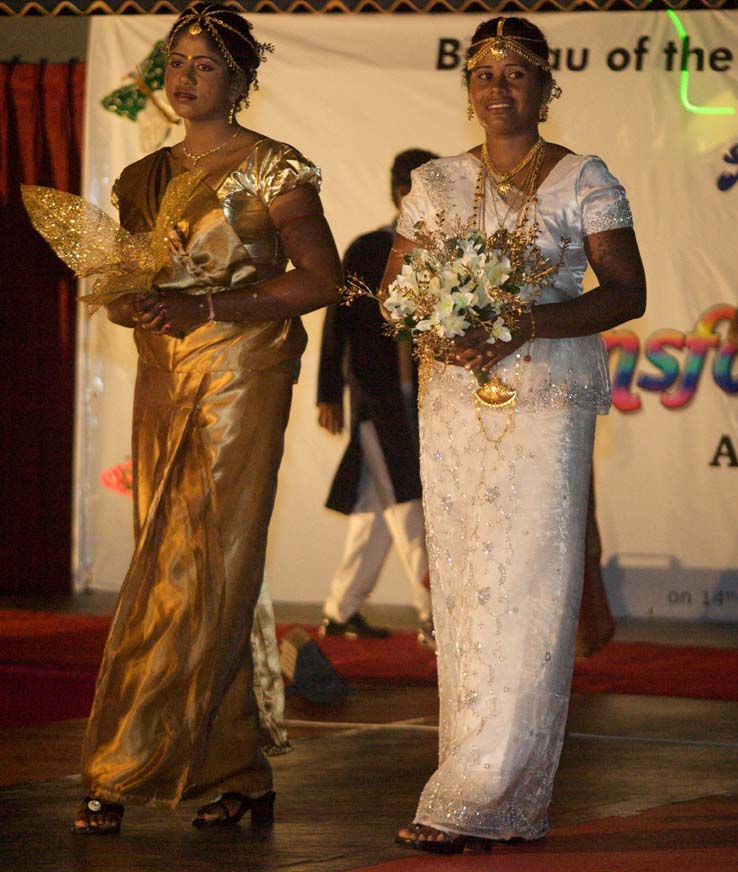
Youth from ex-combatant rehabilitation camps were trained in beauty culture, and a Bridal Show was organized to mark their graduation
We also plan to work with war widows. There are many young war widows who are left with no way of fending for themselves or their children. We are trying to help them engage in some form of home craft or small business so that can be self-employed and financially independent to live with dignity.
Do you have any examples of positive impact your alliance is making in the region?
We have been advocating for a secular constitution in Nepal, as that country is drafting their first ever Constitution, to ensure that the people of Nepal will benefit from a Constitution that protects and not violated basic human rights such as religious freedom. We made a couple of visits to Nepal, both, the WEA as well as the Asia Evangelical Alliance, to lobby for a secular Constitution. In the past we have also assisted our Asian neighbours who have been affected by natural disasters as well as man made disasters – assisting earthquake victims in Pakistan with blankets and warm clothing, assisting victims of religious persecution in Orissa, India. We are also engaged in helping religious refugees from countries such as Pakistan, Afghanistan and Burma who come to Sri Lanka, providing limited assistance for living expenses while their UNHCR applications are pending and legal advice.
Do you know about WEA Leadership Institute and all that it offers? Do you have any suggestions for how to make these courses more accessible from your region?
Yes, it is a really good programme, but one problem is that most people in South Asia don’t have access to Internet – which is essential to follow this course. For many in this region, it is expensive to have a good Internet connection. In Asia, the subject Public Engagement is often viewed as something that is confrontational. There is a need to educate and explain what public engagement is – that it is not necessarily confrontational and that it can be mediation or constructive engagement.
What other services from the WEA has been helpful to your alliance this year?
The information that WEA sends out, the news updates, the analysis reports have been very informative and helpful. Also, being a part of the WEA family and network is a great encouragement. When there are issues which need international contact or intervention that network is really very useful. Also WEA has provided a small country EA like us, where Christians are a small minority, a sense of belonging, identity, a platform for our voice to be heard, a network and services.
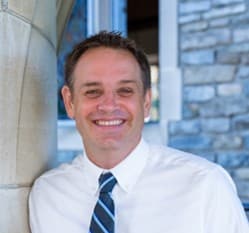




Stay Connected